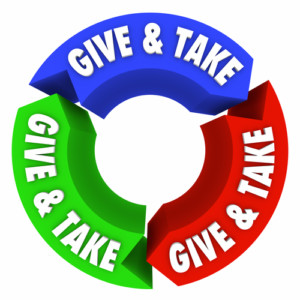 {3:30 minutes to read} For several years now, I have been a member of the board of directors of a cooperative building, aka “co-op,” in New York. Our role is to protect the assets of the shareholders. In doing so, we make decisions regarding the financials and the maintenance of the building, approving new buyers, overseeing the staff, and many other issues that come up on an ongoing basis.
{3:30 minutes to read} For several years now, I have been a member of the board of directors of a cooperative building, aka “co-op,” in New York. Our role is to protect the assets of the shareholders. In doing so, we make decisions regarding the financials and the maintenance of the building, approving new buyers, overseeing the staff, and many other issues that come up on an ongoing basis.
As a board, we vote on all decisions. The voting process is always preceded by an extensive discussion among ourselves to analyze the issues that arise. As you can imagine, the directors who make up the board do not always agree on everything that comes up. In order to make decisions, we need consensus, or at least a majority of votes in favor of the issue which is on the table. The word compromise comes up regularly.
Compromise means give and take — people may get some of what they want, but nobody receives 100% of what they want. Compromise also allows the parties to adjust their positions and arrive at alternate solutions, keeping things running smoothly by avoiding clear “winners” and “losers.”
When I work with people in mediation and mention the word compromise, the immediate reaction is negative. People think of it as their personal loss, giving up something they wanted that the other person is now going to get. What they don’t stop to think about is that the other person will have to give up something they wanted, as well.
By encouraging everyone to give a little, each person involved is also able to gain a little, which makes the solution more positive for everyone and clears the conflict up more quickly.
In my position as board member where we all have opinions on most everything, and thoughts about how we each think a problem should be resolved, I came to the conclusion over time that compromise is quite the opposite of a negative act. In fact, compromise is a way to reach a resolution by allowing people to get some of what they want and move forward. Without compromise, everyone remains stuck in a very uncomfortable place where no decisions are made and nothing gets accomplished.
When you compromise with someone, you are showing that you are willing to give a little. This can be extremely motivating in a negotiation that has been challenging.
Compromise highlights something that is often forgotten in personal and business relationships: the mutually beneficial nature of it. By compromising, you are showing exactly what you stand to gain and lose from a transaction, as well as emphasizing what the other person stands to gain and lose.
So rather than seeing compromise as a negative, view it in its more positive light as it opens the door to a resolution and a satisfactory conclusion to an agreement.
Jennifer Safian
divorce and family mediation
upper east side of manhattan (nyc)
new york, ny
(917) 881 5206
jpsafian@gmail.com
Latest posts by Jennifer Safian (see all)
- misinterpreting your partner’s demeanor may lead to conflict - October 9, 2024
- demystifying the money talk - September 11, 2024
- why are we afraid to discuss money? - August 21, 2024





Leave A Comment